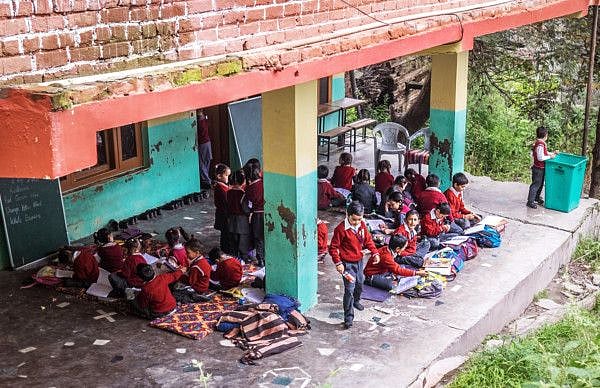Off the Cuff: How rural schools are setting an example
The pursuit of knowledge despite challenges offers a glimmer of hope for the future

I recently started teaching conversational English to my maid’s son. The experience has been a voyage of discovery as it has opened my eyes to the problems faced by those who study in vernacular-curriculum schools run by the government in India.
What amazes me is that this young man is so eager to learn and is happy to get a chance to speak in English. Even before we started the classes, he had taken the initiative of ordering some grammar books on Amazon and had downloaded some apps on conversational English. He is studying for a B. Tech degree and his ambition is to get a good job so that he can help his family live a better life. He encountered English only after starting to study in college and feels handicapped by his lack of knowledge of a language necessary to get a good job in the city.
We read a lot about the problems facing government schools in India such as the absence of teachers who are often demotivated and the lack of quality teacher training programmes. Then there are the children themselves who are unable to cope with the workload as they come from homes where they do not get the sustenance they need, either in the form of nutritious meals or the necessary support and encouragement from parents who are illiterate and struggling to survive.
But then I read an article on how some rural schools are making the most of what they have and getting the desired results. Although the latest Annual Status of Education Report paints a grim picture of senior school students who can’t do basic maths and younger pupils who do not know the alphabet, there are a few schools that are doing well despite the odds, mainly because of a handful of motivated and inspiring teachers. These schools have seen enrolment double as some parents are moving their children to these institutions from private establishments.
A teacher at one such school in the state of Maharashtra says he does not know how many of his students will study beyond class six or seven, but he believes he can make a difference if he teaches them right. Helping them learn to calculate wages, read boards of buses and buy things will prevent them from being cheated.
Heart-warming anecdote
A government schoolteacher in a remote village in the north was dismayed when he found his classroom was empty. Determined to bring his students back, he visited each and every home only to find out that the parents were reluctant to send their wards to school due to the extreme cold. They told him that they simply did not have the money for medicines if their children fell sick. Confronted by this valid reason, the teacher came up with an idea. He went shopping and bought monkey caps for all his students. Next he distributed these at all the homes. Lo and behold, the next day attendance was back to near normal levels.
This heart-warming anecdote proves that lack of basic infrastructure and poor midday meals are no deterrent if the students and their parents feel that their interests are a priority and they matter.
Many children have to trek miles to reach their school and yet they keep coming. Surely this is reason enough to make school an enjoyable experience for them. The story of the struggles of India’s “loneliest student” and his teacher’s 40-km trek to school was shared online. Readers offered supplies and now the school has six students. A small beginning but a beginning nonetheless.
This dogged pursuit of knowledge despite insurmountable challenges offers a glimmer of hope for the future.
Vanaja Rao is a freelance writer based in Hyderabad, India.
Sign up for the Daily Briefing
Get the latest news and updates straight to your inbox
Network Links
GN StoreDownload our app
© Al Nisr Publishing LLC 2026. All rights reserved.